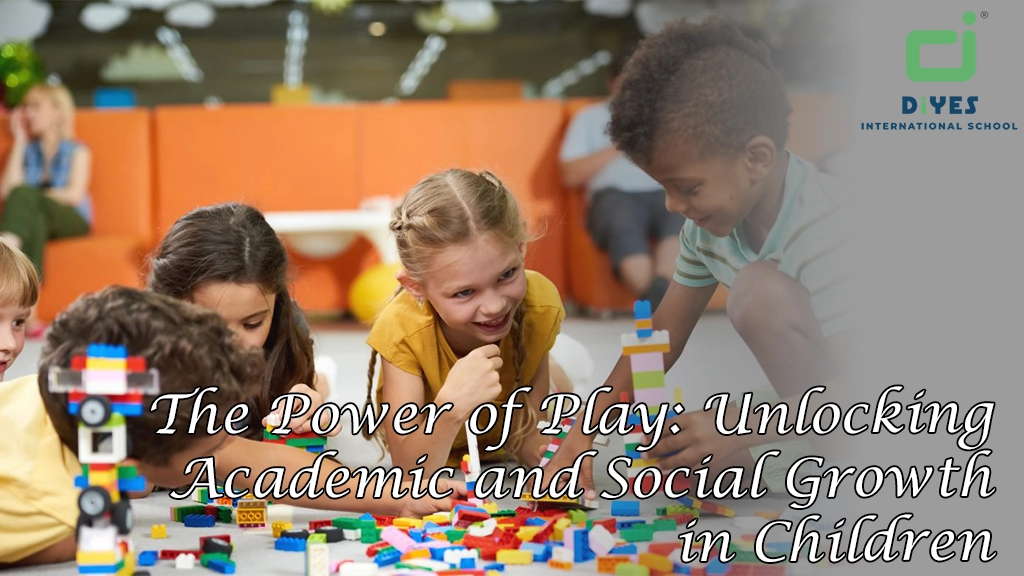
The Power of Play: Unlocking Academic and Social Growth in Children
DiYES International School – Play is often seen as a simple form of recreation, but it plays a crucial role in a child’s overall development. The power of play extends far beyond entertainment—it serves as a foundation for learning, emotional growth, and social skills. By engaging in play, children explore their world, build resilience, and learn to collaborate effectively with others.
In today’s structured academic environment, integrating play into education is more important than ever. Whether through unstructured free play or guided activities, play fosters creativity and problem-solving while supporting children’s physical and emotional well-being. Understanding the power of play can help parents, educators, and caregivers unlock the full potential of every child.
Play offers a unique way for children to acquire knowledge and develop skills. Activities like building blocks, role-playing, or outdoor games encourage critical thinking, decision-making, and adaptability. Through imaginative play, children experiment with ideas, learn to navigate challenges, and develop confidence in their abilities.
For example, a child pretending to run a store learns basic math by counting money, enhances language skills through conversations, and builds empathy by understanding customer needs. This type of experiential learning highlights the power of play in promoting academic growth.
Play is also a powerful tool for building social skills. Group activities teach children how to communicate, cooperate, and resolve conflicts. Games like tag or team sports encourage teamwork, while board games help children practice patience and take turns.
Moreover, unstructured play allows children to express their emotions and understand others’ perspectives. By engaging in collaborative play, children develop empathy and form meaningful connections with peers, reinforcing the power of play in shaping social growth.
READ MORE : Silaturahmi USU dan Jurnalis: Kolaborasi untuk Kemajuan
Physical play, such as climbing, running, or jumping, promotes motor skill development and overall health. It helps children release energy, reduce stress, and improve focus, creating a strong foundation for learning.
In addition to physical benefits, play nurtures emotional resilience. Children learn to cope with frustration, celebrate achievements, and manage setbacks during play. This emotional regulation supports their ability to face challenges in both academic and social contexts, further demonstrating the power of play.
Incorporating play into the classroom enhances engagement and retention. Educators can use games, hands-on activities, and storytelling to make learning more dynamic and interactive. For instance, gamified math lessons or science experiments encourage active participation and curiosity.
Schools that prioritize play-based learning often report improved academic performance and happier students. The power of play ensures that education becomes a holistic experience, blending cognitive, emotional, and social development seamlessly.
Parents play a vital role in supporting their child’s development through play. Encouraging activities like outdoor exploration, creative arts, and group play with friends fosters well-rounded growth. Providing a safe and stimulating environment for play helps children thrive and reinforces the importance of balancing structured tasks with free play.
By understanding the power of play, parents can nurture their child’s creativity, confidence, and interpersonal skills while strengthening family bonds.
The power of play is undeniable in unlocking children’s academic and social potential. It serves as a bridge between learning and enjoyment, allowing children to grow in a supportive and enriching environment. By embracing play as an integral part of development, parents and educators can create opportunities for children to thrive academically, emotionally, and socially.
Play is not just a pastime—it is a cornerstone of childhood that shapes the leaders, thinkers, and creators of tomorrow.